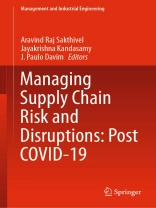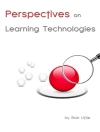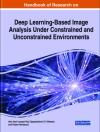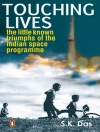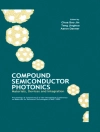This book summarizes the effect of COVID-19 on the global supply chain. Eminent researchers, practitioners, and professors discuss the challenges faced by supply chain providers and supply chain strategies related to various global, retail, fast moving consumer goods, humanitarian, pharmaceutical, and agricultural supply chains. This book also suggests the resilient approach adopted by supply chain organizations for quick recovery and re-establishing their networks. This book helps the readers explore the pandemic’s impact on the supply chain and rebuilding the same using suitable approaches.
Daftar Isi
Impact of COVID 19 on global supply chain.- Challenges faced and preparedness of FMCG retail supply chain during COVID 19.- Challenges faced and preparedness of Agriculture supply chain during COVID 19.- Challenges faced and preparedness of Humanitarian supply chain during COVID 19.- Impact of COVID 19 on Health care/ Pharmaceutical supply chain.- Supply chain adoption during COVID 19 lockdown: Global Scenario.- Role of decision making in supply chain post COVID 19.- Building resilient supply chain networks post COVID 19.- Action plans for logistics and supply chain recovery post COVID 19.- Need for embracing new digital technologies in supply chain management.- Rebuilding supply chain post COVID 19 using Industry 4.0.
Tentang Penulis
Dr. S. Aravind Raj is an Associate Professor in the School of Mechanical Engineering at the Vellore Institute of Technology University, India. He received his doctorate degree in Industrial Engineering from the National Institute of Technology, Tiruchirappalli in 2014. His research area is focused on Agile manufacturing process and their applications in manufacturing industries. Recent work focuses on Industrial Systems Engineering, Additive Manufacturing, Industry 4.0 projects.
Dr. Jayakrishna Kandasamy is an Associate professor in the School of Mechanical Engineering at the Vellore Institute of Technology University, India. Dr. Jayakrishna’s research is focused on the design and management of manufacturing systems and supply chains to enhance efficiency, productivity and sustainability performance. More recent research is in the area of developing tools and techniques to enable value creation through sustainable manufacturing, including methods to facilitate more sustainable product design for closed-loop material flow in industrial symbiotic setup. He teaches undergraduate and graduate courses in the manufacturing and industrial systems area and his initiatives to improve teaching effectiveness have been recognized through national awards.
J. Paulo Davim is a Full Professor at the University of Aveiro, Portugal. He is also distinguished as honorary professor in several universities/colleges in China, India and Spain. He received his Ph.D. degree in Mechanical Engineering in 1997, M.Sc. degree in Mechanical Engineering (materials and manufacturing processes) in 1991, Mechanical Engineering degree (5 years) in 1986, from the University of Porto (FEUP), the Aggregate title (Full Habilitation) from the University of Coimbra in 2005 and the D.Sc. (Higher Doctorate) from London Metropolitan University in 2013. He is Senior Chartered Engineer by the Portuguese Institution of Engineers with an MBA and Specialist titles in Engineering and Industrial Management as well as in Metrology. He is also Eur Ing by FEANI-Brussels and Fellow (FIET) of IET-London. He has more than 30 years of teaching and research experience in Manufacturing, Materials, Mechanical and Industrial Engineering, with special emphasis in Machining & Tribology. He has also interest in Management, Engineering Education and Higher Education for Sustainability. He has guided large numbers of postdoc, Ph.D. and master’s students as well as has coordinated and participated in several financed research projects. He has received several scientific awards and honors. He has worked as evaluator of projects for ERC-European Research Council and other international research agencies as well as examiner of Ph.D. thesis for many universities in different countries. He is the Editor in Chief of several international journals, Guest Editor of journals, books Editor, book Series Editor and Scientific Advisory for many international journals and conferences. Presently, he is an Editorial Board member of 30 international journals and acts as reviewer for more than 100 prestigious Web of Science journals. In addition, he has also published as editor (and co-editor) more than 200 books and as author (and co-author) more than 15 books, 100 book chapters and 500 articles in journals and conferences (more than 280 articles in journals indexed in Web of Science core collection/h-index 59+/11000+ citations, SCOPUS/h-index 62+/13500+ citations, Google Scholar/h-index 81+/22500+ citations).
